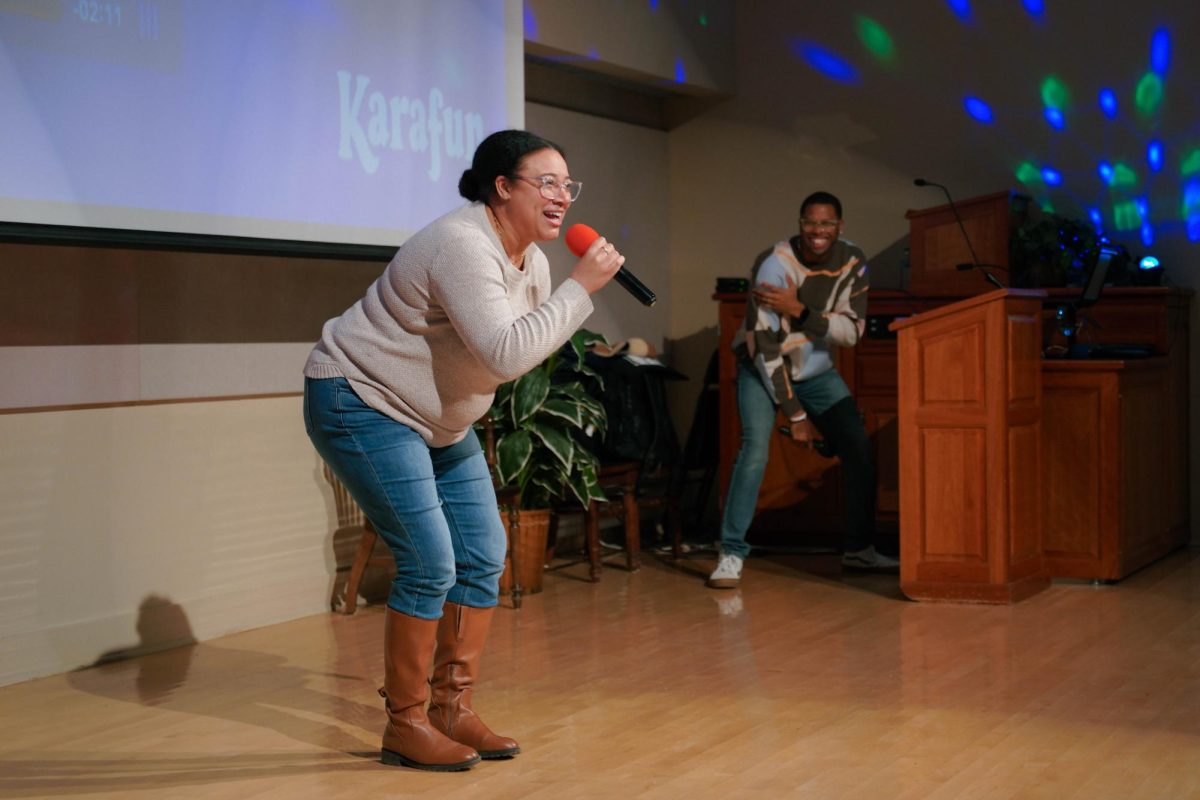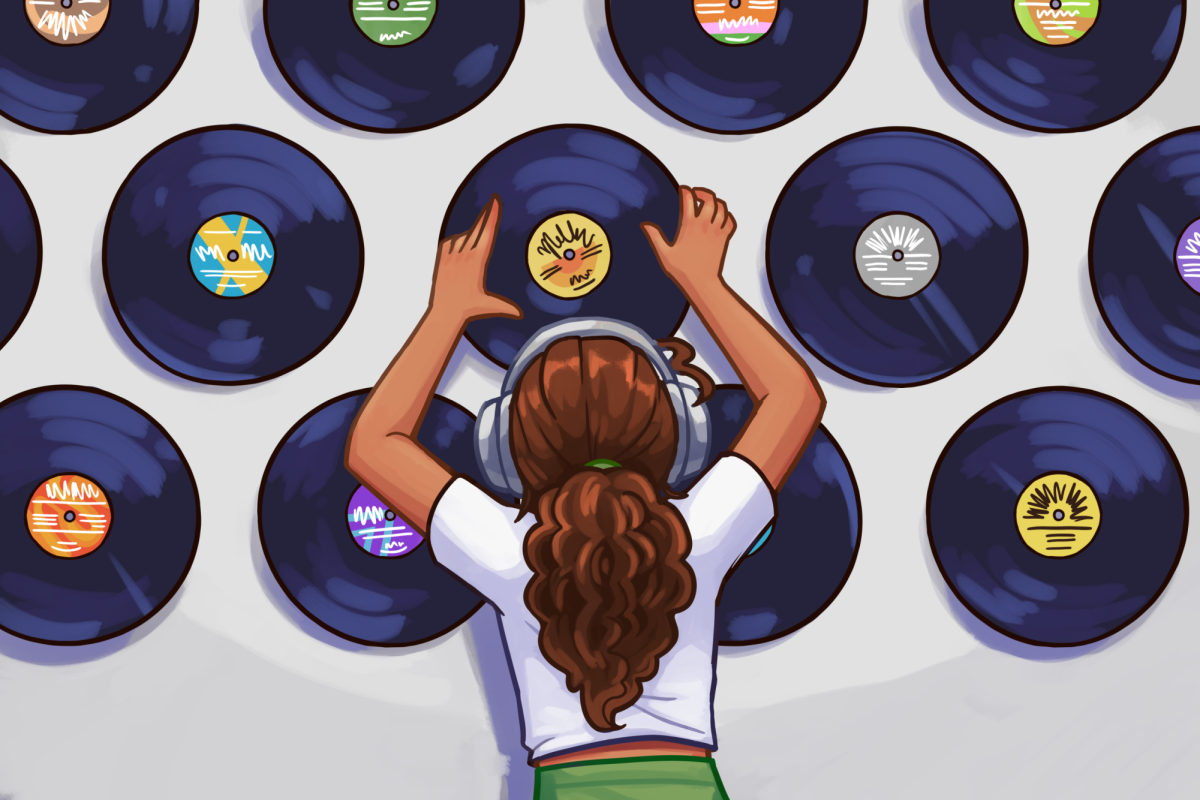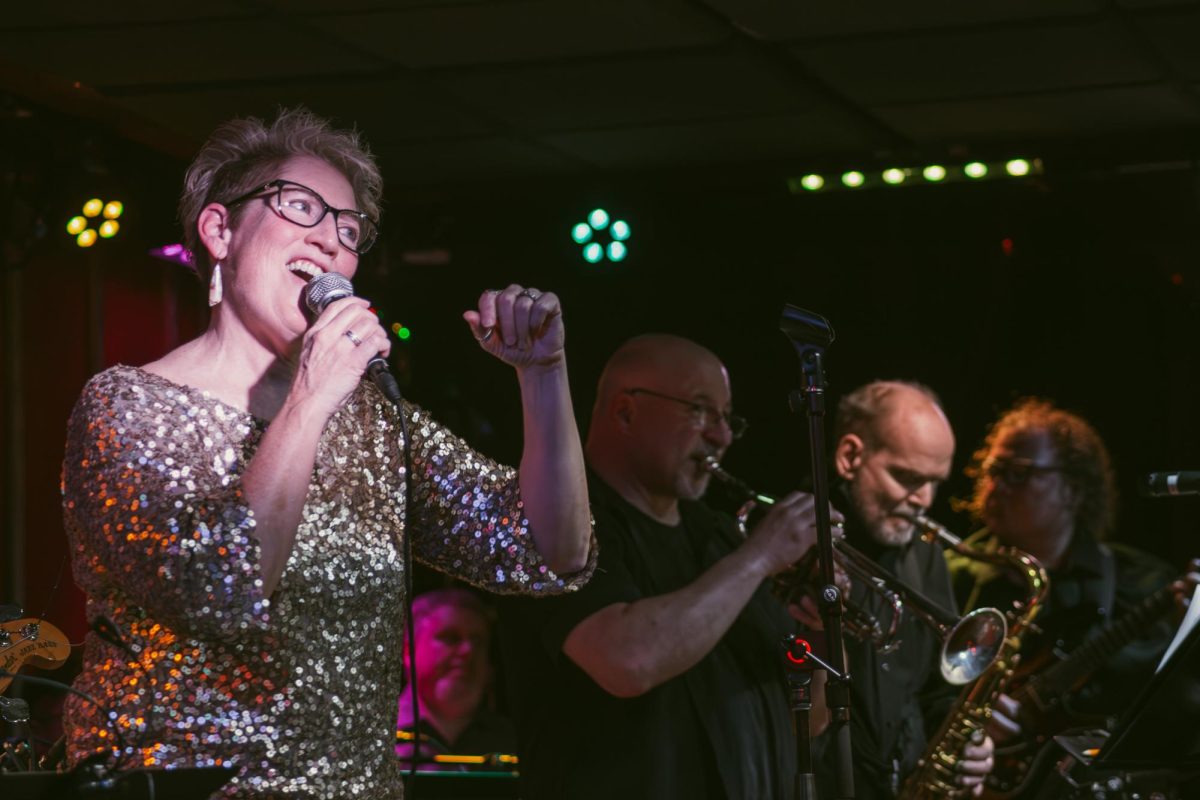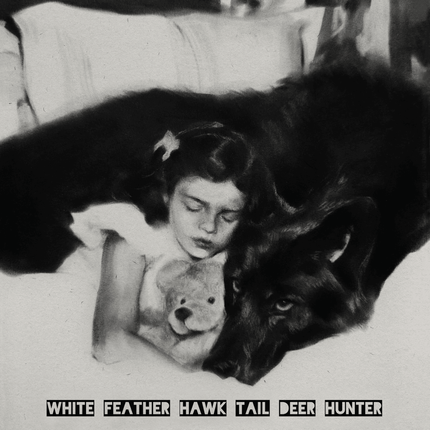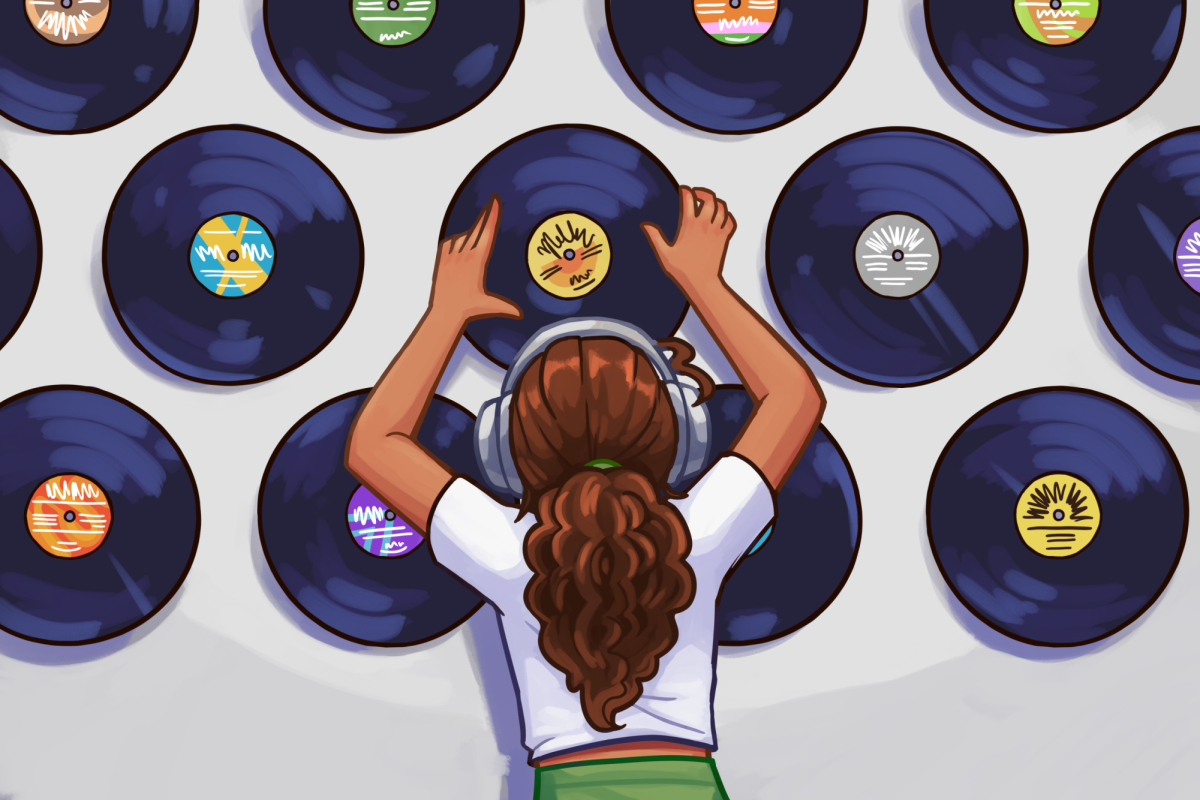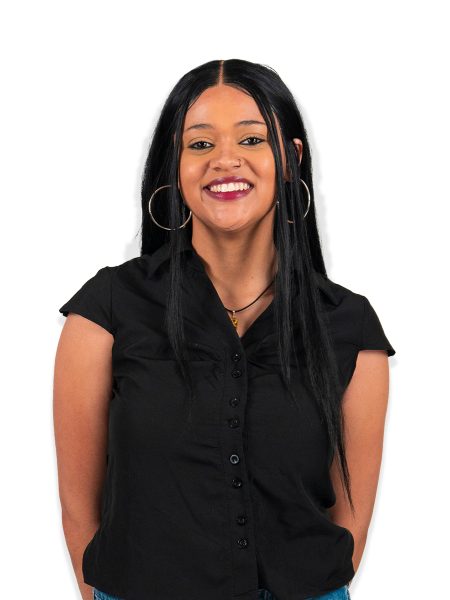Known as the birthplace of Midwest emo, music is everywhere in Champaign-Urbana.
Venues like the Canopy Club, Rose Bowl Tavern and Virginia Theater light up with vibrant performances every weekend, while house shows are packed with musical talent and college students trying to let loose after a stressful week of school.
But amid the endless variety of musical experiences, Black musicians and other diverse groups are often overlooked.
One of these bands, Haki N’ Dem, is an R&B and soul group from C-U and Chicago led by musician Drake Materre. According to their website, Haki N’ Dem features political and social elements, as they create music that encapsulates themes such as race, love, addiction, police brutality, change and spirituality.
“Being Black is political,” Materre said. “My whole being is political, so my music must be political as well. I must use my platform to speak out on the issues and the conditions of the world, the conditions of the people and hopefully inspire individuals to pick up their talents and use them for the greater good as well.”
Get The Daily Illini in your inbox!
Echoing Materre’s sentiments about musicality and Blackness, Afro D & Global Soundwaves, a socially conscious hip-hop/jazz/funk band led by trumpet player, rapper and educator Pete “Afro D” Shungu, also uses their platform for social commentary and change.
Shungu said in an interview that the Champaign music scene is diverse and well-represented, but people often don’t know what’s going on within it.
“I think the scene is very segregated and fragmented,” Shungu said. “People might go to certain venues and see a certain type of music and think that’s the only type of music that exists in Champaign-Urbana. There are scenes for all types of music in Champaign-Urbana, but they’re not what you’ll see front and center.”
While Shungu highlighted the fragmentation of music and diversity in the area, Materre believes that with some musical solidarity, C-U can be the Midwest haven for music.
“You’re definitely going to get your rock ‘n’ roll,” Materre said. “You’re definitely going to get your progressive rock. You’re going to get your punk. But you’re going to get your R&B as well. You’re going to get your soul, you’re going to get it all.”
Soul On Sunday, an event held on the last Sunday of each month, was how Shungu’s music career blossomed. The event highlights Black musicians, poetry and comedy. This month it was held on April 28 at Boomerangs Bar & Grill.
According to Shungu and Materre, events like these highlight Black music in the area by intentionally creating spaces for Black artists while bridging the gap between the campus and the community.
Shungu said that one of his goals is to provide more opportunities for youth to get involved in hip-hop, and is intentionally creating a space for Black music by doing this.
He is one of the co-directors of the 2024 Illinois Summer Youth Music Hip-Hop Camp, a week-long camp where youth from grades 5–12 can learn how to rap, make beats and continue to work on their musical craft.
“That’s a good example of how the university is functioning almost as a community organization that’s intentional about reaching out to the community and providing opportunities for young people,” Shungu said.
Another example is Soul FM, a Black-focused music and news audio service launched in February by Illinois Public Media.
Illinois Soul is on the air in C-U on WILL-FM 101.1 and WILL-FM 90.9 HD2, celebrating Black voices and music. The station focuses on playing R&B, jazz, soul and gospel, providing an intentional platform for Black voices to be heard.
“It’s about allowing Black artists to take up spaces that we normally wouldn’t take up, and giving us that platform,” Materre said. “I think there are definitely efforts there, we just have to continue those efforts.”
Materre emphasized the importance of educating Black university students about the music culture of the surrounding area.
“We also have to ensure that the Black students on campus know what’s happening in the community,” Materre said. “From that standpoint, when you start building a community, a culture will be born from that solidarity.”
As the community intentionally continues to uplift and recognize Black voices, so do local artists.
Emily Jones, known by her stage name Ms. Jones, If you Nasty, is a rapper and singer who performs at house shows in C-U, captivating her audiences with her energetic sets.
“When I first started performing in 2021 in the house show scene, there was a lack of Black representation,” Jones said. “But with newer house venues like CU Gay Bar and The Cosmo and things of that nature … I feel like it’s starting to make it more open and give more opportunities to artists of color.”
Jone recognizes that the music scene is becoming more open-minded and appreciates its progress.
“It kind of started rough, but I’m lucky enough to be a part of the way where people are starting to recognize all artists, not just the artists they’re familiar with,” Jones said.
To Jones, playing at house shows means more than just sharing her music — it’s about giving people a safe space.
“I know a lot of people stopped coming to house shows because they didn’t feel well represented,” Jones said. “Once they see my name on the ticket, it makes them want to pop out.”
Jones expressed the emotion involved in seeing audiences become more comfortable with joining the C-U house show scene.
“It makes them feel like they can come out and enjoy themselves,” Jones said. “That’s the most beautiful thing because I always want to create a safe space in my music.”
Creating this safe space allows people of all backgrounds to come together and creates a fun and welcoming environment.
“I’m happy to do that for queer people and people of color and women and non-binary folks because I feel like we just make the party better,” Jones said. “Having everybody together just makes everything better.”
With the ongoing support of the community, Black musicians are committed to changing the music scene in the C-U area, aiming to create a more inclusive space for everyone.
“We need to keep building those platforms, and if those platforms aren’t there, we’re going to make those platforms ourselves,” Materre said. “If we’re not going to get invited to the table, then we make our own table.”



